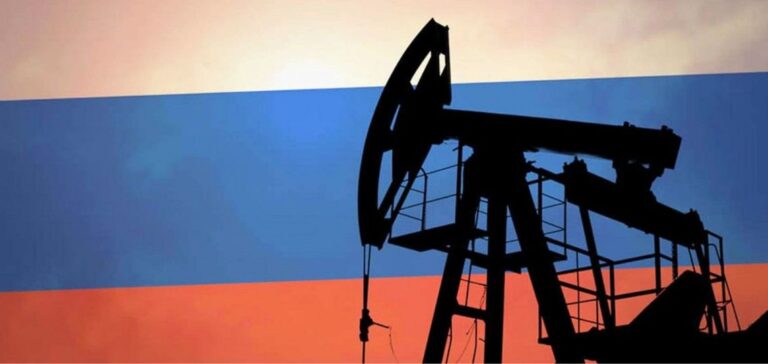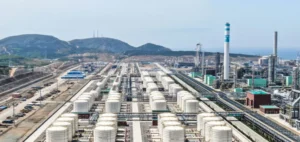The price of oil sold by Russia to Western countries will be capped at 60 dollars a barrel from the next few days, the countries of the European Union, then those of the G7 and Australia having reached an agreement three days before the entry into force of the European embargo.
“The G7 and Australia (…) have reached a consensus on a maximum price of 60 US dollars per barrel for Russian crude oil transported by sea,” these countries announced in a joint statement.
U.S. Treasury Secretary Janet Yellen welcomed the announcement in a statement, which “is the culmination of months of effort by our coalition.”
The agreement was made possible by the consensus reached earlier in the day by the 27 countries of the European Union, which managed to rally Poland.
The finance ministers of the G7 countries agreed in early September on this tool, designed to deprive Moscow of the means to finance its war in Ukraine.
In concrete terms, the price set must be high enough to keep Russia interested in continuing to sell them oil, but lower than the price to limit the revenue it can earn.
The mechanism will come into effect on Monday “or very shortly thereafter,” the G7 and Australia said. The EU embargo on Russian seaborne oil begins on Monday.
Thus, only oil sold by Russia at a price of $60 or less will continue to be delivered.
Beyond this ceiling, it will be forbidden for companies to provide the services that enable maritime transport (freight, insurance, etc.).
Currently, the G7 countries provide insurance for 90% of the world’s cargo and the EU is a major player in ocean freight, which gives it a credible deterrent, but also a risk of losing business to competitors.
Price adjustment
Russia, the world’s second largest exporter of crude oil, had warned that it would no longer supply oil to countries that adopted the cap.
Without this cap, it would be easy for him to find new buyers at market prices.
The price of a barrel of Russian oil (Ural crude) is currently around 65 dollars, which is barely more than the European ceiling, implying a limited impact in the short term.
“We will be prepared to review and adjust the maximum price if necessary,” the G7 and Australia said in their statement. And a cap should also be found for Russian oil products from February 5, 2023.
The European embargo comes several months after the one already decided by the United States and Canada.
But the Westerners must also deal with the interests of powerful British insurers or Greek shipowners.
“The EU remains united and stands in solidarity with Ukraine,” the Czech Presidency of the EU Council welcomed in a tweet.
Russia has earned 67 billion euros from its oil sales to the EU since the start of the war in Ukraine, while its annual military budget amounts to about 60 billion, recalls Phuc-Vinh Nguyen, an expert on energy issues at the Jacques-Delors Institute.
Fears of destabilization
The instrument proposed by Brussels provides for the addition of a limit set at 5% below the market price, in the event that Russian oil falls below 60 dollars.
In fact, some experts fear a destabilization of the world market and wonder about the reaction of the Opec producing countries, which meet on Sunday in Vienna.
“This cap will help stabilize global energy markets (…) and will directly benefit emerging economies and developing countries,” since Russian oil can be delivered to them at prices below the cap, instead assured on Twitter the President of the European Commission, Ursula von der Leyen.
As of Monday, the EU embargo on Russian seaborne oil will cut two-thirds of its crude purchases from Russia.
Germany and Poland having also decided to stop their deliveries via a pipeline by the end of the year, total Russian imports will be affected by more than 90%, say the Europeans.
On the other hand, “an oil price ceiling has never been seen before. We are in the unknown,” said Phuc-Vinh Nguyen, stressing that the reaction of OPEC countries or large buyers like India and China will be crucial.
The only certainty, according to him: a cap, even at a high price, will send “a strong political signal” to Russian President Vladimir Putin, because, once in place, this mechanism can be tightened.





















